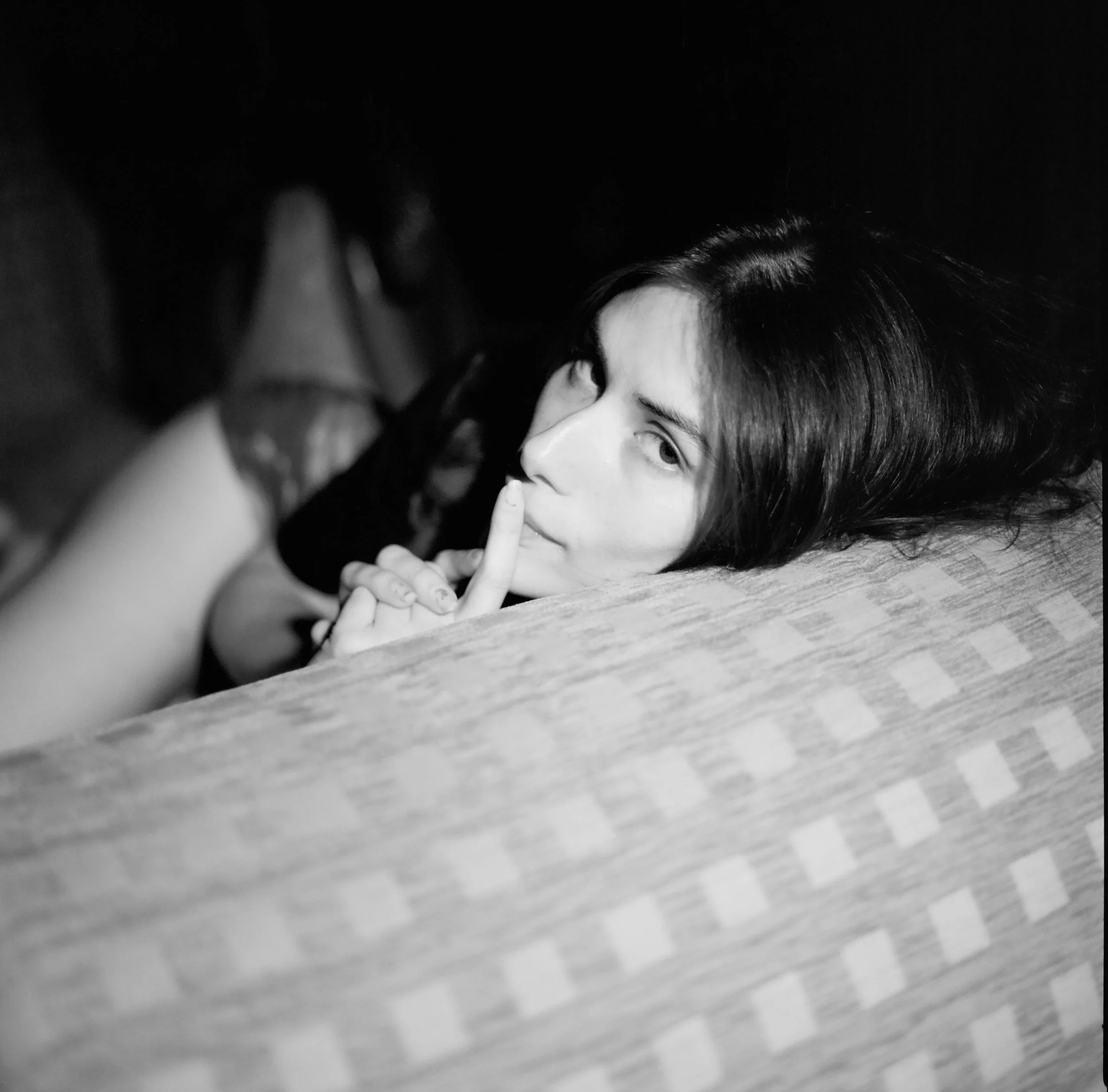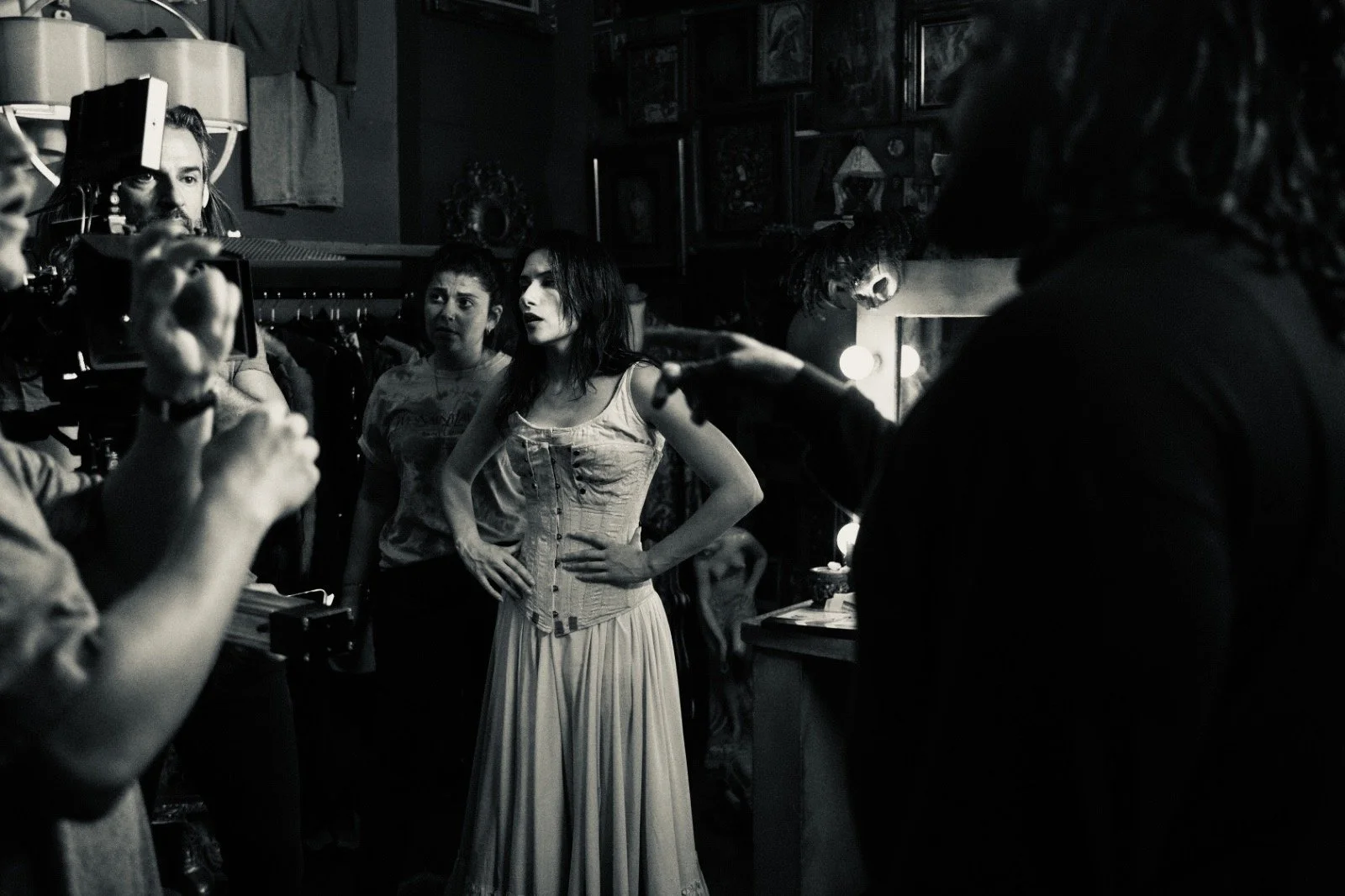Vents
Sophia Dunn-Walker on Defiance, Vision,
and Co-Producing Sundance-Backed Vestibule
[as originally published on ventmagazine.com]
French-American director Sophia Dunn-Walker has always blurred the line between art and rebellion. Legally blind, she came up in the punk scene before turning her instincts toward film, building a body of work defined by boldness and the refusal to compromise. Recently, her production company Enkidu Productions helped bring Vestibule to life—a documentary that earned support from the Sundance Institute Documentary Fund. Co-produced with her brother, the film pushes forward conversations around sexual health and agency while aligning with Dunn-Walker’s larger mission: championing artists with disabilities and redefining what inclusive storytelling can look like when it doesn’t play safe.
How did you and your brother first get involved with Vestibule?
Riley, the director, reached out to our company as she saw that we do work supporting filmmakers with disabilities. She believed that we were aligned in vision and asked us to come on board as co-producers.
What spoke to you in Riley Hooper’s vision, and what made you want to support it?
She has been making this film for nearly a decade. We live in a world that rewards fast content. I see a lot of value in female-led projects with depth. It counterbalances the superficiality of social media culture.
Sundance has a long history of backing projects that disrupt cultural narratives—how does Vestibule fit into that tradition for you?
I think a woman telling her own story is inherently rebellious. Five years ago, it may have seemed that women’s rights were an issue that had already been solved. But reproductive rights and disability rights are more important issues than ever. I also think the fact that she has made a personal story over the course of ten years holds unique weight.
As a co-producer, what was the most challenging or rewarding part of shepherding this film?
Films like this tend to be highly collaborative. So, knowing when to support and when to step back was crucial. In projects where I’m the director, I control every detail. In this, my role was more collaborative.
Coming from punk music into filmmaking, what parallels do you see between those worlds when it comes to risk and defiance?
There’s a lot to be said for beginner’s luck and just trying things.
How does your experience as a legally blind artist shape the way you approach producing and storytelling?
Growing up, people didn’t know how to place me. I was the top of honors classes, while also being in special ed. I appeared normal, but had a lot of needs. And I was rebellious and vulnerable at the same time. I think that the realisation that I had to help myself, assert myself, while knowing I had a disability, really shaped a strong sense of independence in me. As a woman with a disability, people tend to want me to stay quiet and to infantilise me. But I know that I was born to lead.
Through Enkidu Productions, you’re creating space for disabled artists. What does “inclusion without losing its bite” look like to you in practice?
I think that disability stories in the media tend to be very sanitized. I don’t recognise myself at all in inspirational trauma porn. I have a lot of fury and rage. And the world tends to demonize that side of the human experience. I want to make stories that are raw and explore the sides of disability that are isolating and uncomfortable. I want to speak emotional truths without needing to appeal to empowerment narratives.
You’re developing a sci-fi opera alongside other projects. How do you balance producing work with pursuing your own bold directorial visions?
I have a tendency to take on multiple ambitious projects at once. I find that this pays off in the long run, but it is important to know when to ask for help and when to focus exclusively on one project at a time.
For more information, please visit: sophiadunnwalker.com. And you can follow Sophia on Instagram at @sophiadunnwalker.

